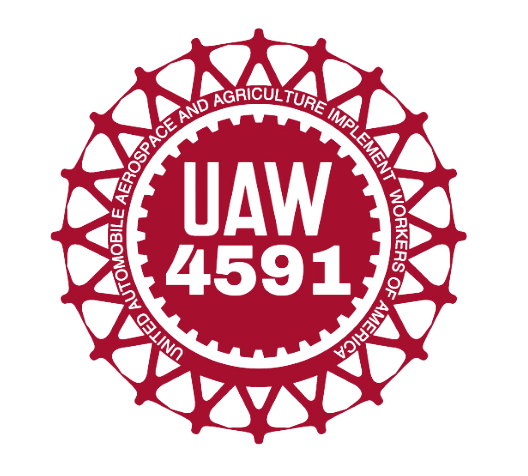By Matthew Mietchen
After having a great start to a career as an epidemiologist at a state health department for nearly a decade, I started looking for opportunities in Washington, where my wife was finishing her degree. Today, I’m working through the final year of my PhD at Washington State University. In spite of the privilege I enjoy and the good fortune of having a supportive supervisor, I learned that the system for earning a PhD is not set up well to support people like me: those with families and those with chronic health conditions. I believe having a union for Academic Student Employees can change that.
Five years ago, I started experiencing several concerning physical issues. Soon after, I was diagnosed with Type 1 Diabetes at the age of 33, two months before moving to a new state, and three months before beginning a life-long goal of achieving a PhD. This was a turbulent time, to say the least.
Because of my health challenges, I thought about postponing my PhD, but decided to stay the course. I ran into a number of obstacles. First, I discovered that the health insurance plan that WSU provides for ASEs is woefully inadequate for people with conditions like mine. To manage my diabetes, I need to see a doctor regularly and require insulin and other supplies which cost hundreds of dollars each month. There is a high out of pocket maximum: under the WSU plan, a family is responsible for paying up to $14,000 out of pocket each year in health care costs. Compare that to the family out of pocket maximum for ASEs at the University of Washington, who have a union, which is $2,400 per year. And the University covers little in premium shares for dependents; as a result I couldn’t afford to add my wife or my daughter onto the health insurance. Doing so would have consumed one-third of my pay each month. We turned to the state for healthcare through Medicaid, and qualified because our household income was so low. I’m grateful for the safety net but question whether the state taxpayers should have to pick up the costs of health care for ASEs. After all, ASEs perform critical work — teaching thousands of undergrads and performing research that brings in hundreds of millions of dollars, and state and federal funding has been increasing.

I’ve also seen firsthand how WSU’s lack of family-friendly policies forces ASEs to make difficult decisions about whether they can remain in their programs — and the data show this burden falls disproportionately on women. WSU faculty, staff, as well as ASEs, get to compete for space in the WSU-subsidized daycare, resulting in ASEs who make substantially less income are forced to seek more expensive daycare options in the community. In addition, WSU faculty and staff are eligible for the Dependent Care Assistance Program, which allows them to use pre-tax earnings to help pay for childcare — over $12,000 of non-taxable income a year. This is not an option for ASEs.
The parental leave policy for Graduate Appointees also falls short of what should be provided. Under Washington law, any Washington employee — including ASEs — who has worked 820 hours or more in the past year is eligible for 12 weeks of paid family leave, and both parents can take leave. But WSU says grad employees can only get four weeks of leave, to be shared between both parents. When my daughter was born 4 weeks early last year that included a 10-day hospital stay; we were not completely prepared and needed time to adjust. Fortunately, I had an incredibly supportive advisor who allowed me to take the time I needed. It is unfortunate that this was placed on the good will of a supervisor, of which many other ASEs I know would have most likely had to leave their program.
While I am grateful for my opportunity to work while earning my PhD, this type of financial package has negative consequences on the profession. It favors independently wealthy students, discriminates against those with chronic health issues and families, and preys on younger, unsuspecting graduate students who feel they have no other options. Older professionals or workers could be discouraged from returning to graduate school, depriving research fields of their perspective and real-world experience. The current system is flawed and does harm to those who choose to pursue the degrees, as well as harm to the institutions that are rendered inaccessible to the majority of aspiring students, and thus lack diversity of all kinds.
Unionized academic workers at other universities have bargained for higher quality health care, more affordable coverage for dependents, better and more inclusive paid leave benefits and stipends for childcare. They also have a clear path to follow when problems arise — so, for example, if they aren’t being given the paid family leave they’ve earned, there’s a grievance process by which to resolve their issue in a timely manner. We can make systemic changes to make WSU more inclusive for non-traditional students like me, and people of color like Brianne, who shared her story about the challenges she faced at WSU.
I’m supporting the union for ASEs at WSU because I believe that by having a collective voice over our working conditions, we can make improvements, like making health care more accessible and providing paid family leave, so that ASEs won’t have to choose between meeting real-life challenges and pursuing their dream of a career in research.
Matthew Mietchen is a PhD Candidate in Infectious Disease Modeling and Epidemiology at Washington State University.
